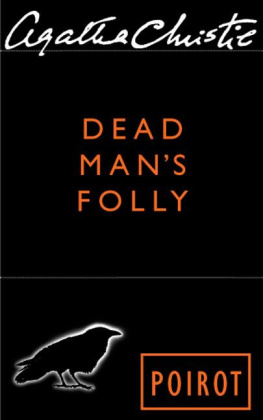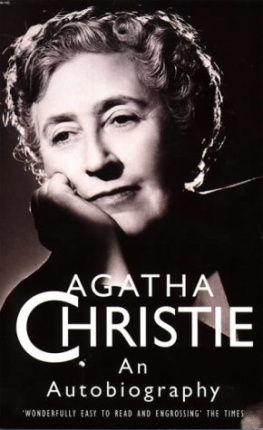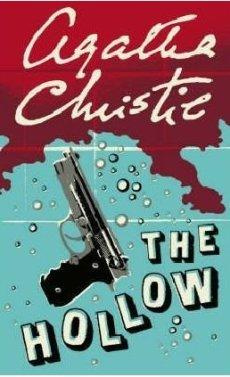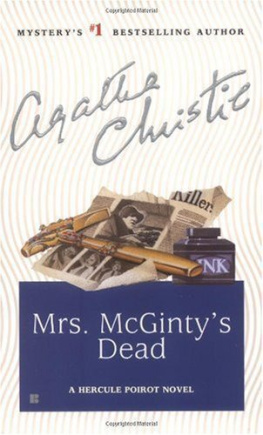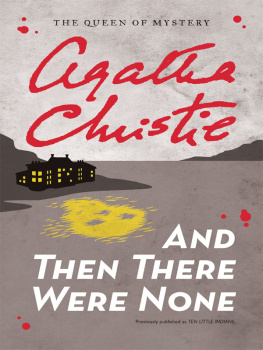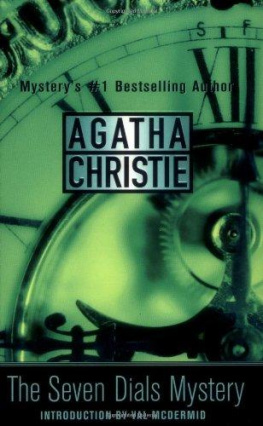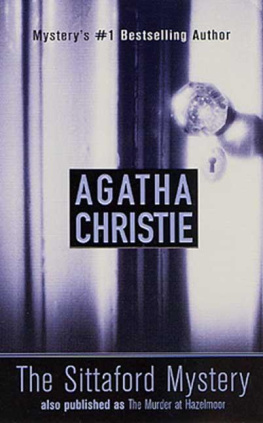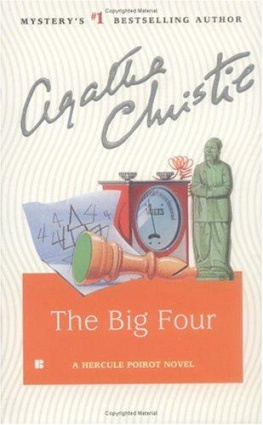Agatha Christie - Mrs McGinty's Dead
Here you can read online Agatha Christie - Mrs McGinty's Dead full text of the book (entire story) in english for free. Download pdf and epub, get meaning, cover and reviews about this ebook. genre: Detective and thriller. Description of the work, (preface) as well as reviews are available. Best literature library LitArk.com created for fans of good reading and offers a wide selection of genres:
Romance novel
Science fiction
Adventure
Detective
Science
History
Home and family
Prose
Art
Politics
Computer
Non-fiction
Religion
Business
Children
Humor
Choose a favorite category and find really read worthwhile books. Enjoy immersion in the world of imagination, feel the emotions of the characters or learn something new for yourself, make an fascinating discovery.

- Book:Mrs McGinty's Dead
- Author:
- Genre:
- Rating:3 / 5
- Favourites:Add to favourites
- Your mark:
- 60
- 1
- 2
- 3
- 4
- 5
Mrs McGinty's Dead: summary, description and annotation
We offer to read an annotation, description, summary or preface (depends on what the author of the book "Mrs McGinty's Dead" wrote himself). If you haven't found the necessary information about the book — write in the comments, we will try to find it.
Mrs McGinty's Dead — read online for free the complete book (whole text) full work
Below is the text of the book, divided by pages. System saving the place of the last page read, allows you to conveniently read the book "Mrs McGinty's Dead" online for free, without having to search again every time where you left off. Put a bookmark, and you can go to the page where you finished reading at any time.
Font size:
Interval:
Bookmark:
Agatha Christie
Mrs McGinty's Dead
Chapter 1
Hercule Poirot came out of the Vielle Grand'mre restaurant into Soho. He turned up the collar of his overcoat through prudence, rather than necessity, since the night was not cold. "But at my age, one takes no risks," Poirot was wont to declare.
His eyes held a reflective sleepy pleasure. The escargots de la Vielle Grand'mre had been delicious. A real find, this dingy little restaurant. Meditatively, like a well-fed dog, Hercule Poirot curled his tongue round his lips. Drawing his handkerchief from his pocket, he dabbed his luxuriant moustaches.
Yes, he had dined well And now what?
A taxi, passing him, slowed down invitingly. Poirot hesitated for a moment, but made no sign. Why take a taxi? He would in any case reach home too early to go to bed.
"Alas," murmured Poirot to his moustaches, "that one can only eat three times a day"
For afternoon tea was a meal to which he had never become acclimatised. "If one partakes of the five o'clock, one does not," he explained, "approach the dinner with the proper quality of expectant gastric juices. And the dinner, let us remember, is the supreme meal of the day!"
Not for him, either, the mid-morning coffee. No, chocolate and croissants for breakfast, Djeneur at twelve-thirty if possible but certainly not later than one o'clock, and finally the climax: Le Diner!
These were the peak periods of Hercule Poirot's day. Always a man who had taken his stomach seriously, he was reaping his reward in old age. Eating was now not only a physical pleasure, it was also an intellectual research. For in between meals he spent quite a lot of time searching out and marking down possible sources of new and delicious food. La Vielle Grand'mre was the result of one of these quests, and La Vielle Grand'mre had just received the seal of Hercule Poirot's gastronomic approval.
But now, unfortunately, there was the evening to put in.
Hercule Poirot sighed.
"If only," he thought, "ce cher Hastings were available"
He dwelt with pleasure on his remembrances of his old friend.
"My first friend in this country and still to me the dearest friend I have. True, often and often did he enrage me. But do I remember that now? No. I remember only his incredulous wonder, his open-mouthed appreciation of my talents the ease with which I misled him without uttering an untrue word, his bafflement, his stupendous astonishment when he at last perceived the truth that had been clear to me all along. Ce cher cher ami! It is my weakness, it has always been my weakness, to desire to show off. That weakness, Hastings could never understand. But indeed it is very necessary for a man of my abilities to admire himself and for that one needs stimulation from outside. I cannot, truly I cannot, sit in a chair all day reflecting how truly admirable I am. One needs the human touch. One needs as they say nowadays the stooge."
Hercule Poirot sighed. He turned into Shaftesbury Avenue.
Should he cross it and go on to Leicester Square and spend the evening at a cinema? Frowning slightly, he shook his head. The cinema, more often than not, enraged him by the looseness of its plots the lack of logical continuity in the argument even the photography which, raved over by some, to Hercule Poirot seemed often no more than the portrayal of scenes and objects so as to make them appear totally different from what they were in reality.
Everything, Hercule Poirot decided, was too artistic nowadays. Nowhere was there the love of order and method that he himself prized so highly. And seldom was there any appreciation of subtlety. Scenes of violence and crude brutality were the fashion, and as a former police officer, Poirot was bored by brutality. In his early days, he had seen plenty of crude brutality. It had been more the rule than the exception. He found it fatiguing, and unintelligent.
"The truth is," Poirot reflected as he turned his steps homeward, "I am not in tune with the modern world. And I am, in a superior way, a slave as other men are slaves. My work has enslaved me just as their work enslaves them. When the hour of leisure arrives, they have nothing with which to fill their leisure. The retired financier takes up golf, the little merchant puts bulbs in his garden, me, I eat. But there it is, I come round to it again. One can only eat three time a day. And in between are the gaps."
He passed a newspaper-seller and scanned the bill.
"Result of McGinty Trial. Verdict."
It stirred no interest in him. He recalled vaguely a small paragraph in the papers. It had not been an interesting murder. Some wretched old woman knocked on the head for a few pounds. All part of the senseless crude brutality of these days.
Poirot turned into the courtyard of his block of flats. As always his heart swelled in approval. He was proud of his home. A splendid symmetrical building. The lift took him up to the third floor where he had a large luxury flat with impeccable chromium fittings, square armchairs, and severely rectangular ornaments. There could truly be said not to be a curve in the place.
As he opened the door with his latchkey and stepped into the square, white lobby, his manservant, George, stepped softly to meet him.
"Good evening, sir. There is a gentleman waiting to see you."
He relieved Poirot deftly of his overcoat.
"Indeed?" Poirot was aware of that very slight pause before the word gentleman. As a social snob, George was an expert.
"A Mr Spence, sir."
"Spence." The name, for the moment, meant nothing to Poirot. Yet he knew that it should do so.
Pausing for a moment before the mirror to adjust his moustaches to a state of perfection, Poirot opened the door of the sitting-room and entered. The man sitting in one of the big square armchairs got up.
"Hullo, M. Poirot, hope you remember me. It's a long time Superintendent Spence."
"But of course." Poirot shook him warmly by the hand.
Superintendent Spence of the Colchester Police. A very interesting case that had been As Spence had said, a long time ago now
Poirot pressed his guest with refreshments. A grenadine? Crme de Menthe? Benedictine? Crme de Cacao
At this moment George entered with a tray on which was a whisky bottle and a siphon. "Or beer if you prefer it, sir?" he murmured to the visitor.
Superintendent Spence's large red face lightened.
"Beer for me," he said.
Poirot was left to wonder once more at the accomplishments of George. He himself had had no idea that there was beer in the flat and it seemed incomprehensible to him that it could be preferred to a sweet liqueur.
When Spence had his foaming tankard, Poirot poured himself out a tiny glass of gleaming green crme de menthe.
"But it is charming of you to look me up," he said. "Charming. You have come up from?"
"Kilchester. I'll be retired in about six months. Actually, I was due for retirement eighteen months ago. They asked me to stop on and I did."
"You were wise," said Poirot with feeling. "You were very wise"
"Was I? I wonder. I'm not so sure."
"Yes, yes, you were wise," Poirot insisted. "The long hours of ennui, you have no conception of them."
"Oh, I'll have plenty to do when I retire. Moved into a new house last year, we did. Quite a bit of garden and shamefully neglected. I haven't been able to get down to it properly yet."
"Ah yes, you are one of those who garden. Me, once, I decided to live in the country and grow vegetable marrows. It did not succeed. I have not the temperament."
"You should have seen one of my marrows last year," said Spence with enthusiasm. "Colossal! And my roses. I'm keen on roses. I'm going to have -"
He broke off.
"That's not what I came to talk about."
"No, no, you came to see an old acquaintance it was kind. I appreciate it."
Font size:
Interval:
Bookmark:
Similar books «Mrs McGinty's Dead»
Look at similar books to Mrs McGinty's Dead. We have selected literature similar in name and meaning in the hope of providing readers with more options to find new, interesting, not yet read works.
Discussion, reviews of the book Mrs McGinty's Dead and just readers' own opinions. Leave your comments, write what you think about the work, its meaning or the main characters. Specify what exactly you liked and what you didn't like, and why you think so.

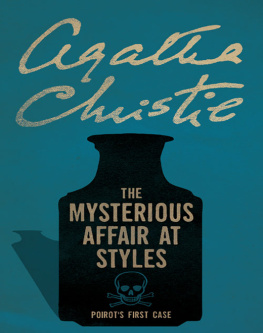
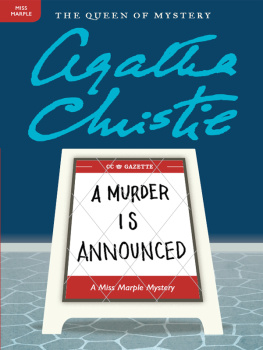
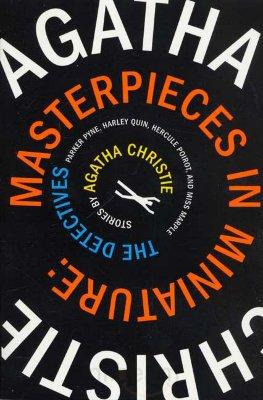
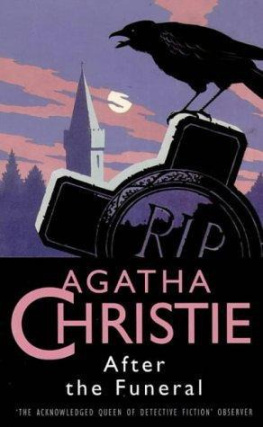
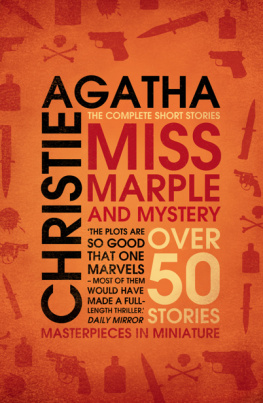
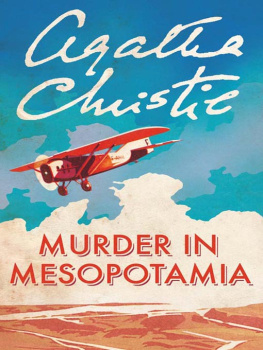

![Agatha Christie [Agatha Christie] - Problem at Pollensa Bay](/uploads/posts/book/140367/thumbs/agatha-christie-agatha-christie-problem-at.jpg)
